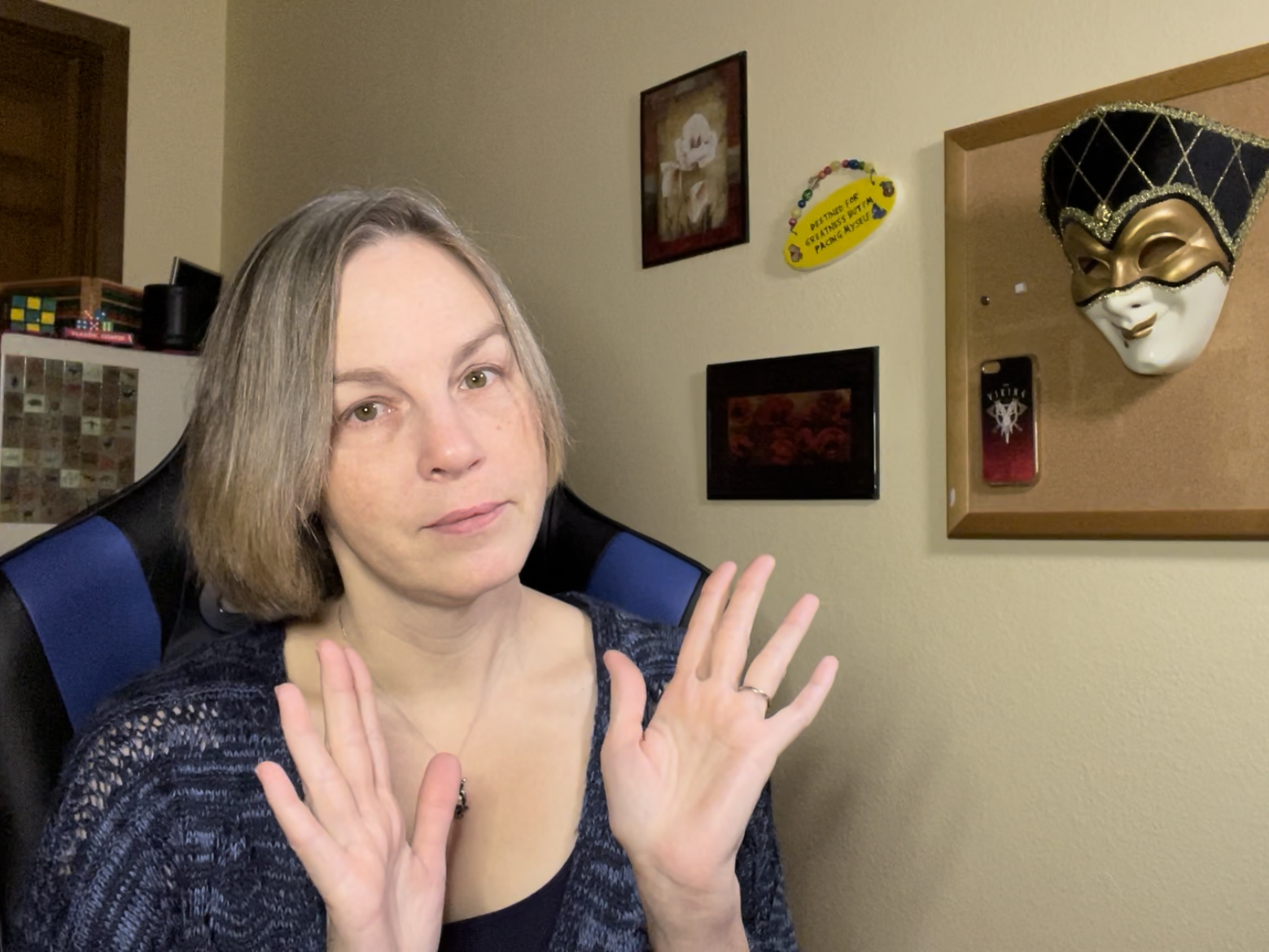The video for this post is at the bottom of the page… please watch, like, and subscribe.
I hear people say, “You need to treat it like a business”. This is often geared towards a person who is doing a side job, where they will only get paid if they sell a certain amount of product or get to a certain level within an organization. It can also be said to an employee of certain types of companies.
For instance, it could be said to a salesperson who is commission only or who gets a wage with a commission bonus. Their manager or mentor could tell them they need to build up their contacts or pipeline in order to get to the level they want to achieve.
Now this is not necessarily bad advice because someone who is commission only or reliant on a customer base, does need to treat what they are doing like it is their own business and not like they are an employee.
The problem comes about when the person giving the advice thinks that the recipient of the advice knows what they’re talking about or what it actually means to “own” a business. Often, people think owning a business is easier than being one of the workers. It most definitely is not easier.
An owner needs to know the ins and outs of their business including what their employees are doing or what their employees know how to do. This is especially true if they have a small business and few employees and not necessarily true for a large corporation.
Often if the owner has hired a manager, that person will take care of those details but if they are a small business, the owner may also be the manager and on some occasions, the employee.
It’s important to recognize that when somebody hears the word “business” they may or may not be thinking of the same framework or concept as someone else. If you tell someone this all-important advice, it is also important to discover what they think a business is and if they have a clue regarding running a business.
What if their idea of a running a business falls under the umbrella of the local grocery or department store or a big box or chain store or a two-pump gas station or their uncle’s lawn mowing company or their sister’s baby-sitting gig she does once a month.
If they are thinking of a big box store, they will be overwhelmed and have no idea what you mean and probably be blown out of the water with this horrible thought of paperwork and accounting and hiring and benefits and OMG.
On the other hand, if they are thinking of the babysitting gig, your advice is not going to seem like a big deal because more than likely there is no record keeping and prices are up in the air and demand is up in the air and there’s no real urgency involved.
The phrase “treat it like it’s your own business” is a shortcut explanation.
We assume everyone knows what that means because it sounds serious and it should be serious. To some people however it will sound overwhelming or come across as negative. They may think that businesses are bad or impersonal; giving them a negative outlook on what you are trying to get them to understand.
One of the problems regarding trying to inspire people to treat what they’re doing like a business, if they don’t understand what you mean, is you get nowhere very quickly. The other problem is you probably do not have the time to explain what it means to own a business because that would add too much time to the process.
How can we therefore find another inspiring way of explaining the importance of what we were trying to get them to do? If you say to them that they need to treat it like a business and they nod their heads, that does not mean they understand what you said or that you are on the same page. It should still be said… but there should be a little more beyond that while also not spending hours explaining your concept.
It could literally start during the interview and pre-employment stage. In most cases all jobs or positions have some sort of interview before choosing someone and, after you’ve chosen that person, there is paperwork or follow-up questions asked.
During the interview process, you could literally just ask them if they have ever owned their own business or know someone who did. If they say no, you can ask if they’ve ever wanted to or ever thought it would be a goal of theirs. If they say no, then you already understand that they will not necessarily understand what it means to own their own business. This means that the phraseology will mean nothing to them the way you want it to.
If they say they have owned their own business or know of someone who did, you can ask follow-up questions. You might ask what kind of business it was, how long they own the business, what were the factors that brought them to this point where they no longer own it. You can ask similar questions regarding the person they might know who owned a business.
If they say they have thought about owning their own business sometime in the future, you can ask them what type of business interests them. You could even ask if they’ve researched into the ease or difficulty of it. This is simply an act of information gathering for future training.
These questions or more specifically the answers will help you know how to motivate them later. If one person has never had a business and has no aspiration of ever owning one, you can still use that same example knowing you’re going to need to follow up with some key details.
If the person has owned a business or wants a business, you can use the same example however you may need to adjust a little based on what they’ve told you. If they said they owned a business that failed because they didn’t know anything about managing or running it, then you will need to adjust your presentation. If they know of someone who had a business and it failed, they may already have an idea of why it failed and, assuming that idea is correct, you can get a feel for their knowledge.
Some training programs have multiple people being taught at the same time. When that happens, it is probably not advisable to focus your examples on one person unless they have brought it up themselves. It is better to use an existing person in your organization as an example of how a person grew in their understanding.
So let’s say you’re doing your training and you’re talking about how hard a person has to work to get their pipeline filled and you say they need to treat it like their own business and everybody in the room nods. Does this mean they understand what you mean? No, it does not.
You would not then say to the group “Bob here owned a business that failed so I want to make sure everybody knows how to properly run a business.” That is what I would call an ass move.
What you could do instead is say “for those of you who have run a business and understand the ins and outs of doing so, you already have an idea what type of dedication I’m talking about”.
I have a feeling that in most cases the people in the room will not truly know what it means to run their own business, but they will instinctively know that it’s serious. Your challenge though is to make sure they fully understand what you mean when you say it.
If you only have one person in your training then you could easily gear it towards information you gained during the interview or pre-employment process. There are all kinds of questions you could ask that give insight into the person’s personality and abilities and understanding.
It’s difficult for me to say what kind of questions to ask because I believe it should be geared towards the company in question.
If you require the trainee to market themselves in order to gain clientele as a personal trainer, that will be different then the person who needs to sell cars or real estate. In some regard they are similar because they could contact their friends and family, they could wait for people to come into the establishment looking for a service, they could run local ads or even go door to door.
But the level of commitment or demand will be different for someone who has 20 clients who go to the gym for training versus the realtor who must get new clients or potential future clients to fill their pipeline.
They both want returning customers and they both want referrals but the level is different. Depending on where they work and how they work, they could literally both be commission only.
For the sake of argument let’s say you are going to hire three people and one was a personal trainer, one was a realtor, and one sold cars. You might assume they all know how to run their own business but that would be a silly assumption because you don’t know what the company was like where they were before they came to you.
The good thing is, you already know with this very small amount of information, how you could approach getting them to understand the importance of what you want them to do. If you were talking to them individually, that would be easy but if you’re talking to them as a group, then you need to gear it towards all of them at once.
You could request each of them to introduce themselves and give a brief bio of what they’ve done before. In doing this, they have now told everybody else what they did and you can now very easily refer back to that info later. If they don’t mention it, you could find a way to use what you know about their past work experience in a general way.
You might talk about how important it is to have the names of past clients in their contact list because they never know when someone might need to buy another car. You might mention how important it is to follow up with past clients to make sure things are going well and maybe ask if their house is still big enough for their needs. You might mention how keeping a log of your client’s progress and helping with goals can instill trust which can also bring about referrals.
These are all things that a good business owner or someone who is treating what they are doing like a business, would do. You give the client what they need, you follow up with them to make sure things are still good, and you ask for referrals directly or through the relationship you have created over the months and years.
There are obviously other ways to treat things like a business, but these are ideas and fundamentals that most people can understand because they themselves want good service and want to be treated with respect. If you do that, they will refer people over and over again.
Using a person’s past experience and knowledge can help them understand this all-important phrase of “treating it like a business” while also helping them realize, without necessarily saying it, that some of their past conceptions may need to be abandoned.
Treating something like a business means hours of hard work, very few breaks or days off, dealing with rejection but having a resource to help them bounce back, and knowing that success will only come as quickly as they put their mentor’s process into practice.
Once you help them understand what you mean, your own frustrations and barriers will diminish, and the next breakthrough idea will sprout in your mind.
I hope you found this instructional, useful, or at least entertaining. This is PJ, and I’m done with that thought.
See this video at the following locations
Utreon
YouTube














